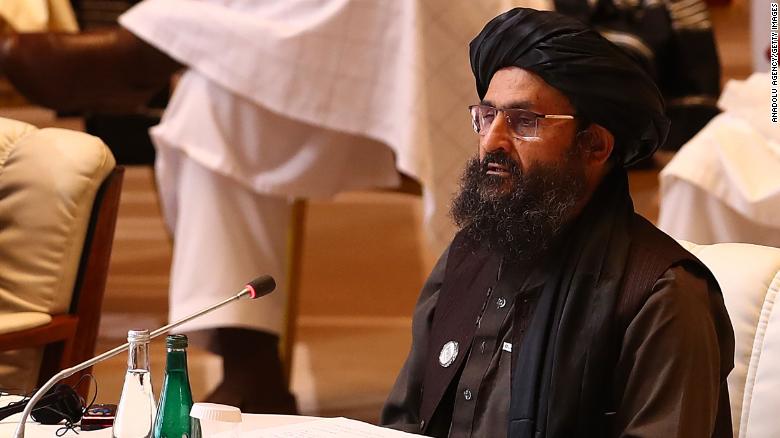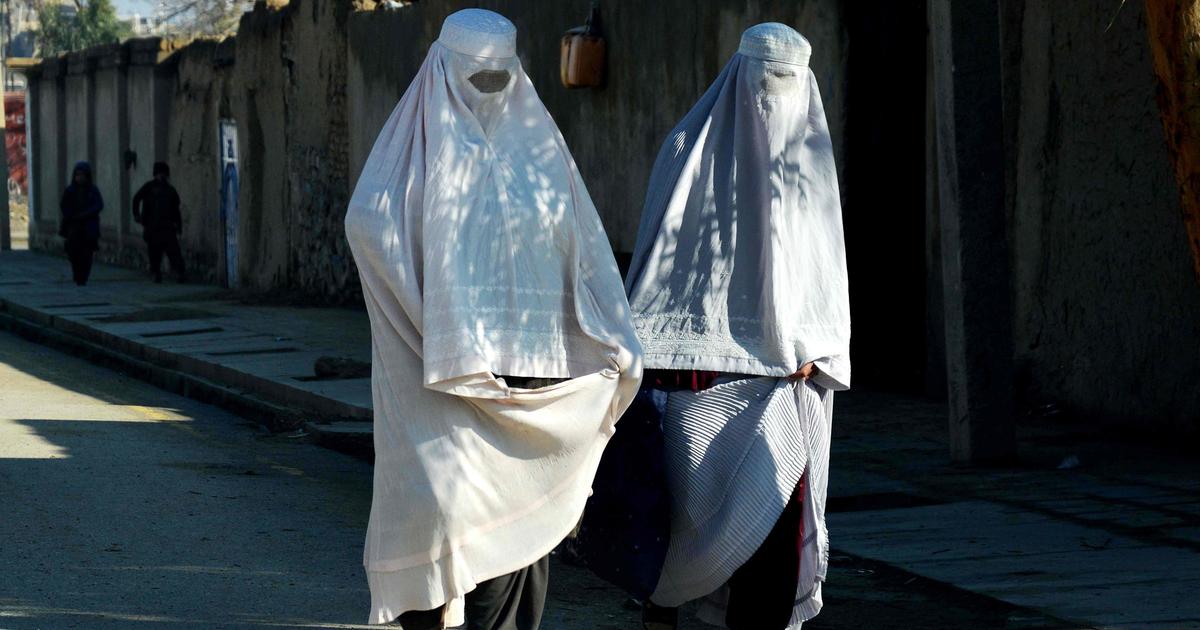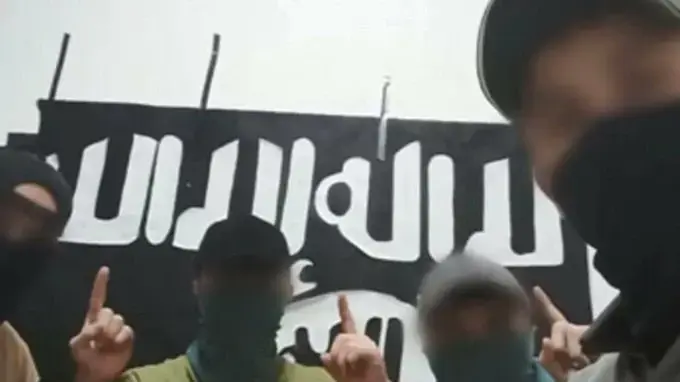Is the Taliban Makeover Real?
3:03
(CNN) -
The Taliban's staggeringly swift takeover of Afghanistan has caused fear across much of the nation, as Afghans eagerly readjust to life under a militant group that repressed millions when in power. for the last time.
During the Taliban rule between 1996 and 2001, brutal flogging, amputations and public executions were common.
Women were largely confined to their homes and the death penalty was applied for crimes such as female adultery, homosexuality and the rejection of Islam.
With the gaze of the media back on Kabul, and Western forces staging a hasty retreat, the world is eagerly waiting to find out whether the new era of the Taliban will see a return to those days.
So far, militants have sought to portray themselves as more progressive, inclusive and restrained than the group that terrorized communities two decades ago, claiming that they will not seek retaliation against their political enemies and that women will play an important role in society and have access to education.
The Taliban have been in charge of Kabul for 48 hours.
The women have already disappeared from the streets
But every promise has been backed by a reminder of the Taliban's "core values" - a strict interpretation of Sharia law, which experts say has not been drastically rethought in 20 years.
The group's co-founder and deputy leader, Mullah Abdul Ghani Baradar, arrived in Afghanistan on Tuesday for the first time since he played a key role in the last Taliban government, a sign that the influence of the old Taliban guard has not diminished.
advertising
And his early actions have dashed the hopes of many Afghans that the Taliban might have changed in the decades that followed.
The group's fighters clashed with activists during the first major protest against their new regime on Wednesday, three witnesses told CNN, firing guns at a crowd and beating protesters in the city of Jalalabad.
Women have already disappeared from the streets of Kabul for fear of the new reality of life under the control of the Taliban;
husbands and fathers have been buying burqas out of fear that their female relatives will only be safe if they cover up.
Attacks on women across the country in recent weeks, when the Taliban regained dominance in Afghanistan's provinces, have provided a chilling preview of what awaits millions.
'Taliban 2.0', advertising strategy or reality?
2:31
Who is in charge of the Taliban?
Taliban leader Mawlawi Haibatullah Akhundzada took office in 2016 after the group's previous leader, Mullah Akhtar Mohammad Mansour, was killed in a US airstrike in Pakistan.
He hails from the Taliban heartland of the Panjwai district of southern Kandahar province, said Sayed Mohammad Akbar Agha, a founding member of the Taliban who lives in Kabul and says he knows the new leader at the time of his appointment.
While Akhundzada was involved in the mujahideen's fight against the Soviet invasion in the 1980s, Agha said it was unlikely that he would have participated in front-line military activities.
He carried out judicial work between 1996 and 2001, the period of the Taliban rule in Afghanistan, and after the group's fall from power in late 2001, he served as president of the Taliban Supreme Court, according to Agha.
Akhundzada has two assistants.
One, Maulvi Mohammad Yaqub, is the head of the Taliban military commission;
on Tuesday he told the fighters not to enter the homes of locals or seize their property, in a message widely distributed on the group's channels.
He added in the message that "things will be decided later in an organized way at the leadership level."
Sirajuddin Haqqani, the other deputy leader, wrote a controversial opinion piece in
The New York Times
last year in which he presented any future Taliban government as a moderate guardian and said that "the killings and mutilations must stop."
Haqqani is described by the FBI as a "specially designated global terrorist" and is wanted for questioning for a 2008 attack on a Kabul hotel that killed six people.
The FBI is offering $ 5 million for information leading directly to his arrest.
On Tuesday, a spokesman for the Taliban political bureau confirmed the return to Afghanistan of Taliban co-founder Baradar, a jihadist cleric who played a prominent role in his last government.
Afghanistan, one of the worst places in the world to be a child, says UNICEF.
This is the critical situation that could get worse under Taliban control
It is the first time Baradar has set foot in the country in 20 years, and it comes 11 years after the country's security forces arrested him in neighboring Pakistan.
He was released to participate in the peace talks between the Taliban and the administration of former US President Donald Trump, and has since played a key role for the Taliban on the world stage.
Baradar spoke to Trump by phone, and the two sides' negotiations culminated in a landmark 2020 peace deal that laid the groundwork for the withdrawal of US troops and the subsequent resurgence of the Taliban.
Taliban co-founder Mullah Abdul Ghani Baradar in Doha last year.
Baradar returned to Afghanistan on Tuesday after two decades.
Last month, Baradar also met with China's foreign minister as the Taliban advanced through Afghanistan, an early sign of the warm ties between Beijing and the militant group.
The Taliban have several different formal commissions for political, intelligence, military and cultural affairs.
Its Preaching and Guidance Commission has met with surrendered Afghan soldiers, officers and politicians in recent days and backs the group's promise of amnesty for those involved in the US-backed government.
The Taliban also have a political office in Doha, Qatar, which will likely play a much more visible role on the world stage when the group controls the government of Afghanistan.
Afghans nervously watch as the Taliban regime takes shape, as the US and its allies continue their frenzied exit
What will a Taliban regime look like?
Mexico will offer asylum to Afghans who request help 0:35
Members of the Taliban's sophisticated communications operation have been increasingly visible in the early days of the new regime, telling international journalists at every opportunity that the group will form an "inclusive Islamic government."
One of the main promises is that women's rights will be protected.
But when pressed on those guarantees at a press conference on Tuesday, the group's spokesman, Zabihullah Mujahid, said the paper would be "within the framework of Sharia law ... in all sectors of society, where it is used. require, it will be within this framework. "
It is questionable whether the Taliban's harsh interpretation of Sharia law, a set of principles that govern the moral and religious life of Muslims, has changed dramatically in the past two decades.
Sharia law was established 1,400 years ago and only religious scholars can carefully amend or update it, experts from the region told CNN.
When they came last in power, the Taliban used Islamic law as a justification for dozens of violent and repressive punishments, including public executions.
The alleged adulteresses were stoned to death and the alleged robberies were punished by amputation.
It's unclear whether these brutal methods will resume, but worrying signs are already emerging.
Human Rights Watch said last month that the advancing Taliban forces were targeting critics to attack, despite public promises that they had ordered the fighters to exercise restraint.
The murder of comedian Nazar Mohammad by two Taliban fighters last month sparked fear in Kandahar.
And a deadly attack on a woman's home in a northern Afghan village on July 12, reported by CNN, has fueled fears that girls and women will again be targeted.
The Taliban knocked on her door three times: the fourth time, they killed her
The international community has largely received the Taliban's promises with skepticism.
"Spokesmen for the Taliban have issued a number of statements in recent days, including the promise of an amnesty for those who worked for the previous government," United Nations High Commissioner for Human Rights Rupert Colville said Tuesday. it's a statement.
"They have also pledged to be inclusive. They have said that women can work and girls can go to school. Those promises will need to be kept and for the moment, again understandably given past history, these statements have been received with Some skepticism. However, the promises have been made, and whether they are kept or not kept or not will be closely scrutinized, "he said.
"We call on the Taliban to show by their actions, not just their words, that fears for the safety of so many people from so many different walks of life are being addressed."
Taliban








